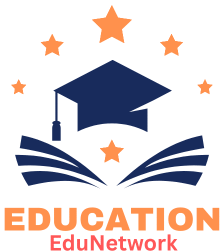Working as an education consultant is one of the most interesting and rewarding jobs in the domains of education and professional development.
Due to rapid changes in the educational environment brought about by global migration, changes in legislation, and improvements in technology, there is an increasing demand for experienced education consultants.
Whether they are collaborating with companies, students, schools, or colleges, education consultants are crucial to producing high-quality educational outcomes.
In this detailed guide, we will discuss the role of an education consultant, including their responsibilities, required qualifications, potential career paths, and employment prospects.
If you are seeking a rewarding profession with opportunities for promotion, education consulting may be the perfect fit for you.
How Does an Education Consultant Work?
An education consultant is a trained expert who advises organizations, families, and students on matters of educational policy, curriculum development, academic planning, learning strategies, and college and university admissions.
Such consultants may work for themselves, for educational institutions, or as part of a larger consulting firm.
Education advisers provide their specific knowledge to help individuals make educated choices about their education.
Their areas of expertise include academic advice, school admissions, international education, special education, online learning, and career counseling, among many others.
Responsibilities and Functions of Education Consultants
Expert education consultants may be responsible for a broad variety of tasks.
Some of the more common duties associated with these roles are as follows:
1. Academic Advising
Academic advising specialists help students choose the right programs, study paths, or colleges based on their goals and academic achievements.
2. College and School Admissions
Assisting students with their applications to highly esteemed educational institutions both at home and abroad is a highly sought-after specialty.
Among these services are application assistance, test prep, essay critiques, and interview coaching.
3. Curriculum Design
Collaborating with educational institutions or corporations, education consultants may develop or improve teaching practices and curriculum.
4. Professional Progression
Staff and instructors are provided with training and seminars to enhance educational delivery and learning results.
5. Offering Advice on Educational Policy
Consultants at the senior level might work with non-governmental organizations (NGOs) and government agencies to improve educational policy, system-level performance, and inclusion.
6. Assistance with Special Education
When it comes to developing curriculum for students with disabilities or special needs, these consultants are experts in working with both families and schools.
Where Are Educational Consultants Employed?
Education consulting is a flexible field that may lead to employment in many different settings:
-
Consultancy firms that are private and specialize in college guidance and international admissions.
-
Consultant that runs their own firm on an independent or freelance basis.
-
Looking for suggestions for curriculum and policies from K-12 schools.
-
Schools and universities that are aiming to improve the success or retention of their students.
-
Companies in the education technology sector are developing innovative teaching materials.
-
Governmental agencies working on educational or scientific change.
-
Groups and non-governmental organizations championing educational equity and access.
As a result of the expansion of online education, many consulting roles in the field of education are now remote or hybrid, offering more flexibility and access to clients all over the globe.
Education Consultant Requirements and Abilities
While becoming an education consultant isn’t quite a linear process, most positions do need a mix of relevant work experience, academic credentials, and interpersonal abilities.
-
An undergraduate degree in psychology, education, counseling, or a closely related field is often required.
-
Job prospects are substantially enhanced with a master’s degree in education, counseling, or leadership in the classroom.
-
Extra certifications, such as TESOL (for international consulting), career coaching, or college counseling, could be useful.
-
You must have excellent communication and interpersonal skills.
-
Ability to be organized and manage one’s time effectively
-
Thinking analytically and solving problems
-
Familiarity with educational standards and frameworks
-
Proficient use of software for school administration, customer relationship management, Microsoft Office, and Zoom
-
Bilingualism (especially for international consultants)
Employment, Salary, and Career Opportunities for Education Consultants
Consulting firms, regions, specializations, and years of experience all have a role in determining an education consultant’s salary.
Here is an overview:
-
Beginning consultants may expect to earn between $40,000 and $60,000 a year.
-
Mid-level managers with 3–5 years of experience might expect an annual salary between $60,000 and $85,000.
-
Senior or expert consultants: $90,000 a year and up to $130,000plus
If you operate a private practice or are a freelance consultant in a highly sought-after field, like international college admissions, you may earn a lot more money.
The job market for education consultants is looking well.
The increasing competition for school admissions, the emphasis on personalized learning, and the mobility of foreign students have all contributed to an increase in the number of families and institutions seeking the guidance of consultants.
Different Roles Played by Education Consultants
Education consulting is a broad profession with several subfields.
Of the many varieties, the most frequent are:
1. Consultant for College Admissions
One resource that may help students through the challenging college application, interview, and essay writing procedures.
2. Consultant Specializing in Foreign Education
Assists students in their pursuit of study abroad by handling matters such as school selection, visa applications, and international tests such as the TOEFL or IELTS.
3. Curriculum Creator
Lesson plans and instructional materials are developed or improved in collaboration with publishers and educational institutions.
4. Career Guidance
Assists individuals in making informed course selections, determining their career, or preparing for the labor market.
5. Consultant for Corporate Training
Seminars on professional development and education are offered to firms and organizations.
6. Consultant for Special Education
Works with children who have learning challenges to create and implement individualized education programs, often known as IEPs.
Strategies for Finding Employment as Education Consultants
Those interested in beginning a career as an education consultant may benefit from the following tried-and-true methods:
1. Online Employment Databases
Online job boards like Indeed, LinkedIn, Glassdoor, and ZipRecruiter regularly include hundreds of openings for education consultants throughout the world.
2. Niche Job Sites
Websites like EducationWeek, Idealist, and HigherEdJobs cater specifically to education-related job postings.
3. Create Your Personal Brand
Your LinkedIn profile, YouTube channel, or blog, if well managed, may attract employers or clients.
4. Developing Relationships
Take part in networks for educators in your area or join national groups that focus on education, such as NACAC or the Independent Educational Consultants Association (IECA).
5. Freelance Marketplaces
Upwork, Freelancer, and Fiverr are great places to start if you want to build a clientele for your consulting services.
Myths and Reality Checks for Any Aspiring Education Consultant
If you want to be a successful education consultant, you should follow these guidelines:
-
Be abreast of changes in educational policy, trends, and foreign admissions.
-
Spend money on workshops, webinars, or certifications to keep your skills current.
-
Be trustworthy and forthright with your clients and show them that you can supply what they need.
-
Make better use of technology to streamline your consulting process.
-
Choose a niche (like special needs education or science, technology, engineering, and mathematics (STEM) college admissions) to establish credibility and expertise in.
Final Thoughts
All things considered, working as an education consultant offers a unique combination of financial stability, personal freedom, and meaningful work.
In an increasingly complex educational landscape, consultants have become indispensable as families and organizations seek tailored, expert guidance.
Whether you’re passionate about guiding schools on policy, designing impactful curricula, or assisting students in reaching their full potential—education consulting may be a fulfilling and lucrative career path for you.
If you are committed to continuous learning, have the right qualifications, and are in a strategic position, you have a good chance of building a successful career in this growing field.
An education consulting profession could not have started at a more opportune time.
